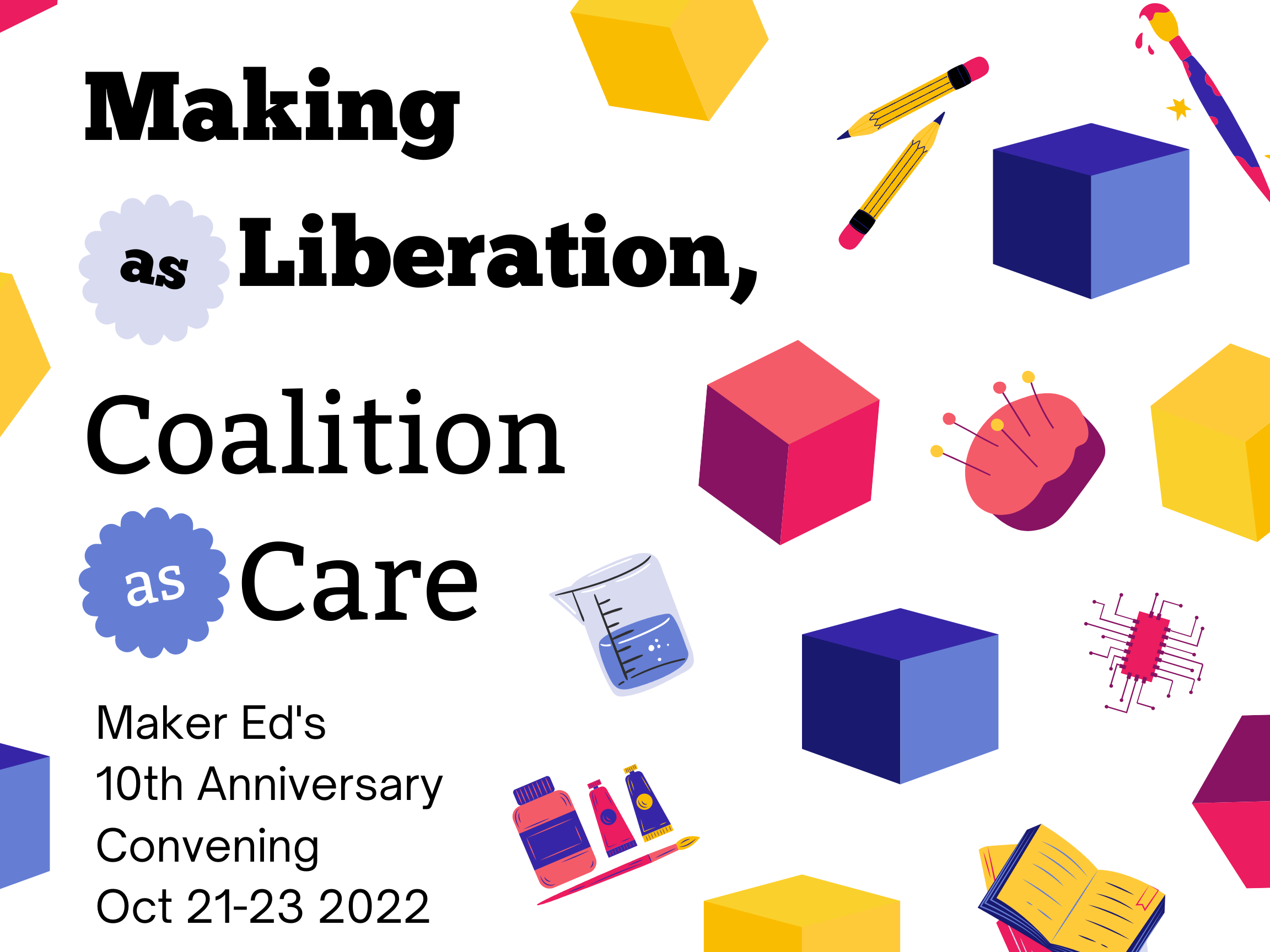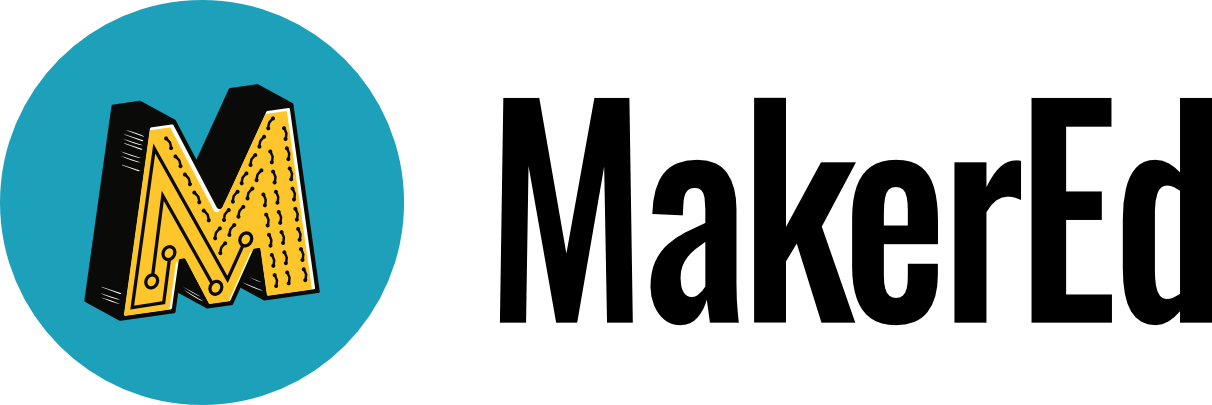Maker Ed is turning 10 years old this year. To celebrate, we are bringing back our Convening event this Fall!
We invite you to come celebrate, learn, and build community with us. Read more about the event and apply below.
As we turn 10, we are reflecting on our journey to this point and imagining the possibilities for the next 10 years. A lot can happen in a decade. At Maker Ed, we are holding the complexities of our times tenderly and on most days we have more questions than we have answers. We do know is that the next 10 years in our radical imagination is a collective path centering people and embracing praxis.
This year’s Convening has a theme of Making as Liberation, Coalition-Building as Care and will be a 3-day VIRTUAL experience, Friday, October 21, 2022 through Sunday, October 23, 2022.
Our theme of Coalition-Building as Care is inspired by Tony DelaRosa’s article, “Why Coalitions Aren’t Just for Political Campaigns.” He writes:
When you hear the term “coalition,” you often see it referring to organizing or campaigning for public office. In education, we often hark on the African proverb, “It takes a village to raise a child.” But do we really cultivate “villages” to raise our schools? At its core, a coalition is a group of people who’ve come together to share resources to support a common cause. A coalition in a school might look like PTA members organizing a food bank or a group of teachers who’ve come together to support the use of antiracist curriculum. In other words, coalitions are essential to ensuring that students are supported and educators can truly make an impact.”
We look forward to designing and planning this event with our community and building a coalition of diverse maker educators.

PROPOSAL INFORMATION
For this year’s 7th Annual Convening, we encourage you to submit proposals that represent new voices, creative ideas, concrete practices, and lessons learned. We are specifically interested in proposals that integrate the critical pieces of our theme: making, liberation, coalition-building, and care.
For your convenience, our proposal guidelines and application questions are provided below to help you plan. Applications open on June 30, 2022. The deadline for submitting proposals is August 11, 2022.
All applications will be reviewed on a rolling basis by Maker Ed staff through a double review process; presenters will be notified about their RFP status by early-September 2022.
We strongly advise that you consider all the different elements that are required for your submission proposal before you begin. You will not be able to edit your proposal once you click the submit button.
If you have any questions, or would like support in crafting your session description, please reach out and ask. These queries can be directed to convening@makered.org
PROPOSAL GUIDELINES
Maker Ed is committed to equity as an organizational priority and we strongly encourage applicants from diverse backgrounds and from communities most impacted by an unjust education system to apply.
We welcome a maximum of four presenters per session. All proposal questions are provided here to guide you through the form.
Session Formats
Sessions will need to fall into one of the following formats listed below. Applicants will be asked to identify one format in their application. With all sessions, we encourage you to be as interactive as possible, especially in a virtual setting. For each format, a linked guide provides additional information and recommendations.
- Panel Conversation
- 60 minutes in duration, as a facilitated conversation on a specific topic. Panels should include a max of four presenters, including one person as a moderator or facilitator.
- Making Workshop
- 60 minutes in duration, where participants are actively engaged in a live, embodied making experience. If your workshop includes specific materials, please address materials access in your application.
- Discussion
- 60 minutes in duration, where the focus of the session is to spark and engage in deliberate discussion around a certain topic or question
Proposal Review Factors
Factors that our team will consider during the review process are included below. For all submissions, we will consider if and how the proposals address each of the following categories:
Content & Design
- Addresses issues of equity such as access, social justice, liberation, anti-oppression and anti-racism
- Centers two or more of our thematic topics: Making, Liberation, Coalition, and Care
- Engages participants in a virtual environment
- Contains new and timely ideas
- Moves the field of maker education forward
- Is applicable in a variety of educational settings, formal and informal
- Supports community and/or coalition building
Voices
- Includes representation of Black, Indigenous, and People of Color (BIPOC), disabled, LGBTQ+, and/or undocumented voices
- Includes representation of youth voices
- Includes presenter(s) who are knowledgeable of and experienced in the topic they are proposing
Communication
- Conveys the content and topic of the sessions clearly
- Addresses the session’s goals clearly and concisely
